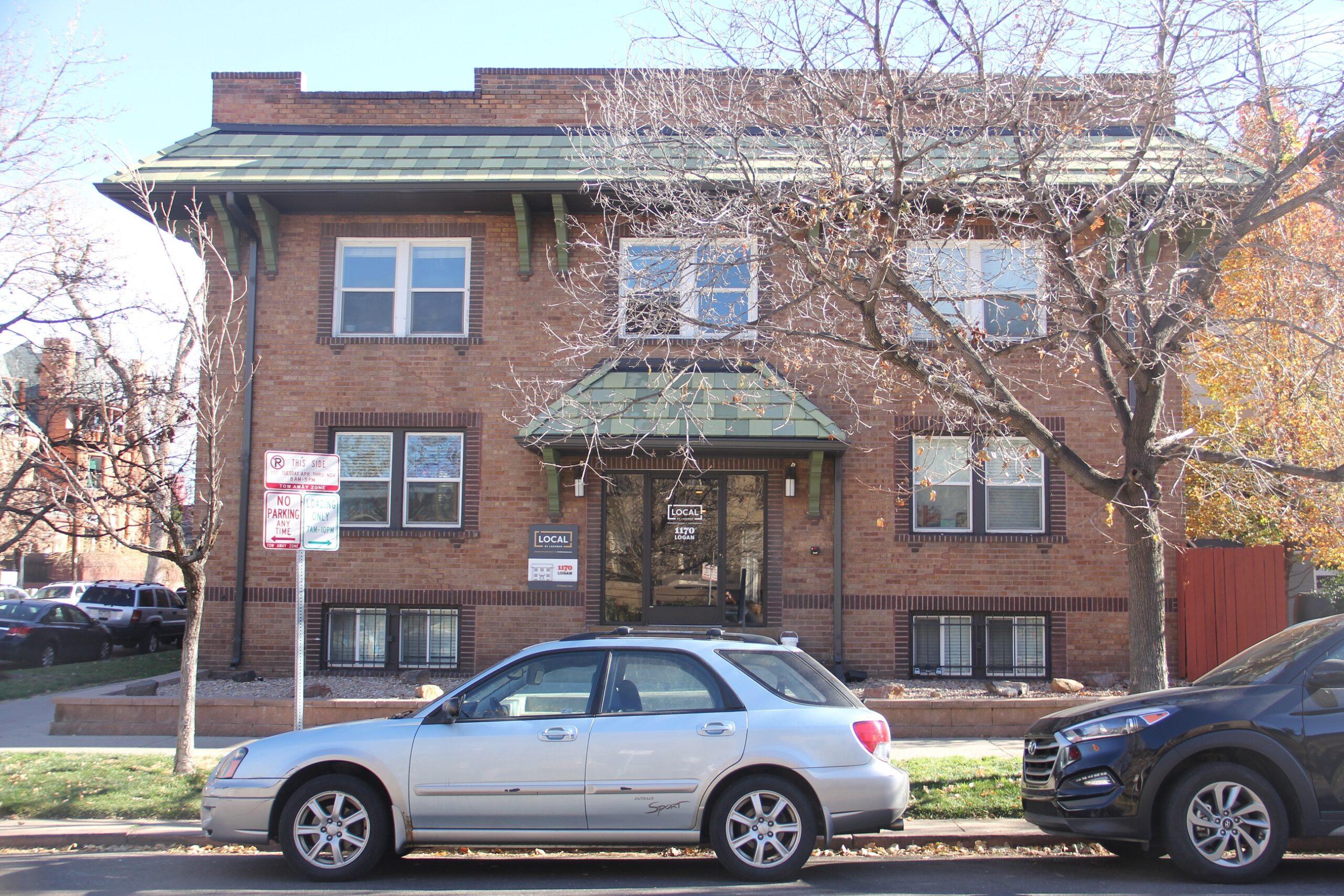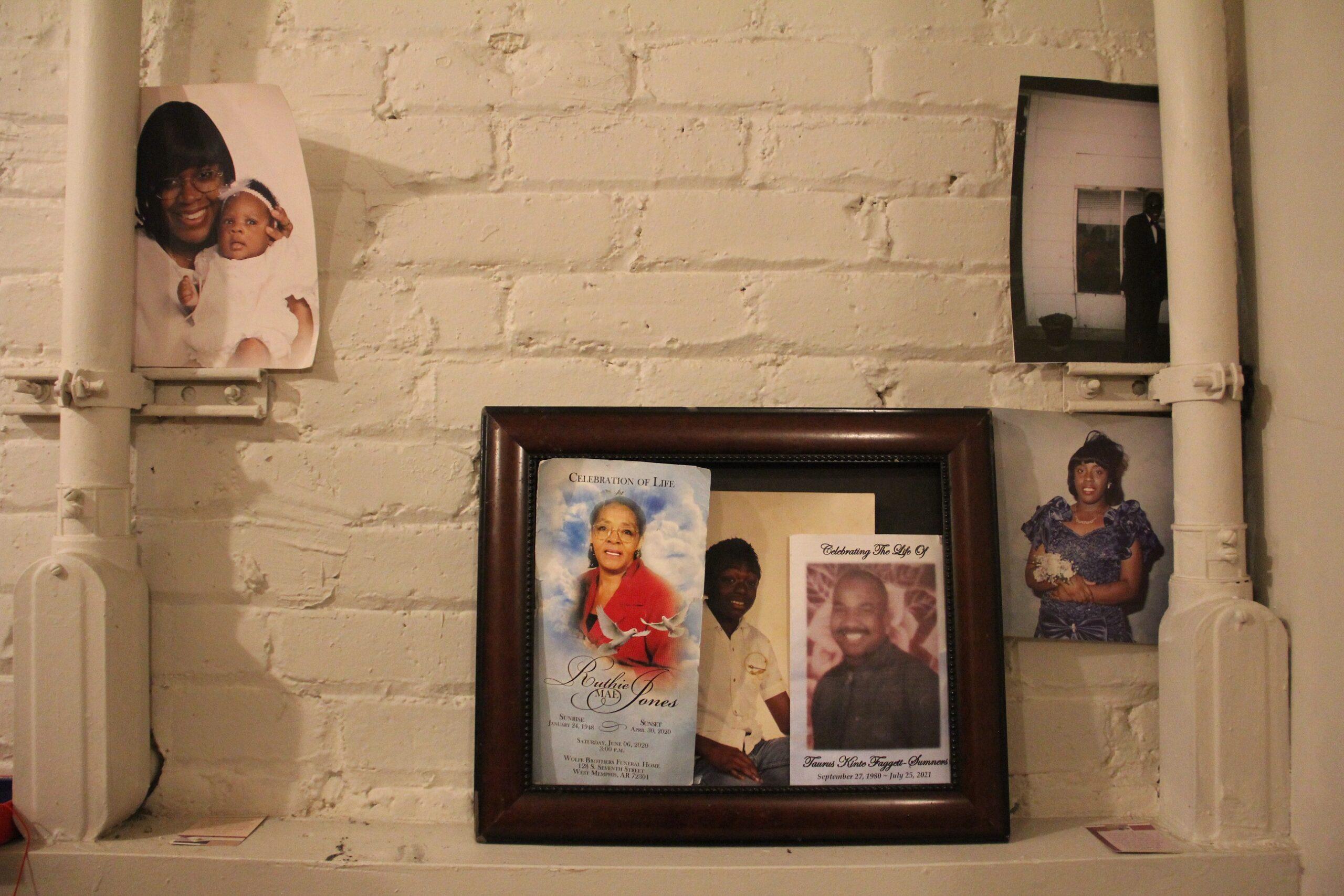Family photos are everywhere in Andre Lavonn Faggett's studio apartment in Cap Hill. Some of the photos are unframed, folded inward to keep them upright, facing him no matter where he moves.
One photo shows his late mother, Ruthie Mae Jones. Another shows him grinning as a teen. There are photos with his aunt, cousins, and family friends.
"I've always kept my family with me," Faggett said. "The ones that's gone, the ones that are here and I'm rooted, you know?"
At 48, he's seen his fair share of life -- maybe too much.
Originally from Memphis, Faggett spent seven years in prison before he moved to Colorado in 1998. His father lived in Montbello, though Faggett stayed in southeast Denver, along Leetsdale Drive. Faggett tore his aorta while weightlifting in 2018, which lead to a minor stroke and a seizure. He's spent the last three years effectively homeless, alternating between stays at motels and the Crossroads Shelter in Five Points. He said he slept outside just once when he got too drunk and ended up under a bridge.
Now he has a home, a place where he can kick back and think about the day, catch up with people, think about how he got here and consider what his next step will be. Faggett is one of the hundreds of people who have been placed in permanent housing thanks to a city-led initiative to house 200 people experiencing homelessness in 100 days. The initiative, led by the city's Department of Housing Stability (HOST), started housing people in September.
Faggett has worked full-time doing maintenance duties at Crossroads since June. He was hoping to find a place in Montbello, but Cap Hill works. He said he likes its "flavor."
"This place puts me in a position where [I can take my time] but know that you gotta know where to even go from here," Faggett said. "But this is a good starting point because I don't know what life is going to bring me."
The housing program appears to have been a tremendous success.
The city says its actually surpassed its goal: At least 504 individuals have been placed in housing through the city's push, representing 291 households (some housing situations involve multiple people), according to Denver Department of Housing Stability (HOST) spokesperson Derek Woodbury. The city also plans to offer short-term housing to people experiencing homelessness through a safe outdoor space located on city property.

Meanwhile, rent prices continue to skyrocket in Denver, and the city continues to sweep encampments, much to the chagrin of advocates for the homeless. A survey released this summer by Denver Homeless Out Loud suggested the sweeps shuffled people from block to block, and less than a third of residents surveyed said they moved into a shelter, hotel or with a friend after a sweep. Less than 5% said they moved into housing.
Still, Angie Nelson, Deputy Director of Housing Stability and Homelessness Resolution at HOST, said the initiative that helped Faggett get an apartment has been a great success. The city considers someone "housed" with the help of a case manager, who follows the person's journey from the streets to a more permanent option, like supportive of public housing.
The initiative started after the city and agencies it partners with, including the Metro Denver Homeless Initiatives, decided to use new emergency housing vouchers made available through the U.S. Department of Housing and Urban Development. Nelson said nearly 20 agencies have been involved in the effort.
Nelson said those partnering agencies work at a "breakneck pace" to try and get people housed. That pace may slow over time, she said.
"Part of what's great about the surge is it gets us all working with intensity for the short period of time, and then we'll take a step back and we learn," Nelson said. "We are a learning organization at the Department of Housing Stability. And so part of our wind down from the surge is understanding lessons learned, what could we do better next time."
A second "surge" is scheduled for February, Nelson said, following the annual Point-in-Time count, which is a one-night count of the number of people experiencing homelessness in Denver.
Crossroads Shelter assistant director Tyler Burwell said he got to know Faggett as a client, when Burwell was head of the shelter's case management team.

Case managers help people staying at the shelter figure out next steps. They can help people track down copies of vital documents, such as social security cards, birth certificates and IDs, which are required in order to secure a job and housing.
The shelter is run by the Salvation Army, which can provide money for security deposits and rent for people staying at the shelter. The shelter's goal is to transition guests into more stable situations. Burwell said the shelter has managed to help find housing for about 15 to 20 people in the last few months.
"A lot of people, they are very similar" to Faggett, Burwell said. "They need a little extra help in order to get back into living the life they want to live."
That's more or less where Faggett is at right now. He wants to get married. He said he doesn't want to end up a loner, even though he said he's used to being alone a lot. He's ready for a next step, at least when it comes to relationships.
"But just having this place, man, it's great," Faggett said.
Clarification: This story had been updated to clarify what the city counts towards permanent housing for the surge.













